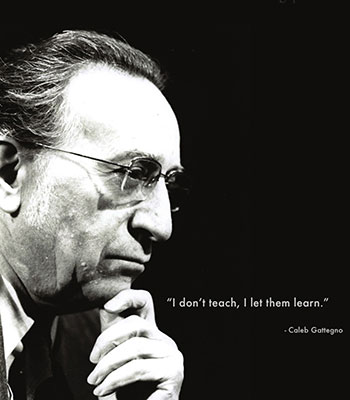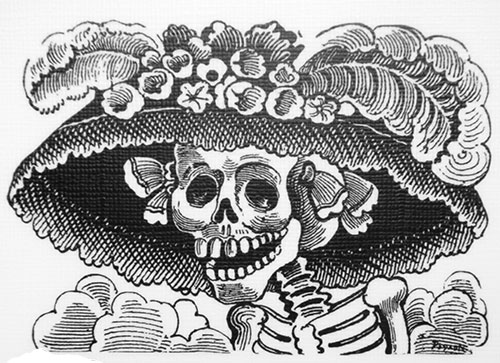|
By John Pint
 Thirty-six
years ago, one of the deepest thinkers I know of wrote a short essay on
death. I tried to read it all those years ago but the ideas were too
difficult for me to grasp...or maybe I just wasn't ready. Thirty-six
years ago, one of the deepest thinkers I know of wrote a short essay on
death. I tried to read it all those years ago but the ideas were too
difficult for me to grasp...or maybe I just wasn't ready.
Time went by, as it has a habit of doing and recently I pulled out my
faded copy of On Death, an essay by Dr. Caleb Gattegno
(1911-1988), author of 120 books largely on the topics of
education and human development. This time I could read it—actually, I
couldn't stop reading it.
Gattegno suggests that we might learn something about life and death by
looking at the cycle of being awake and being asleep which we
experience daily. “Why do we sleep?” he asked himself for years, but
only moved towards an answer when he changed the question to “Why do we
wake up?” He saw sleep as a chance for our inner self to shut off
sensory input and sort things out, to make sense at night of what we
have learned during the day.
Let's jump to another topic: What is living? He says living is
exchanging time for experience. And how about the purpose of life? Why
are we here? Gattegno suggests we are on this earth to grow in
awareness and that awareness is what we take with us when we leave.
Yes, when we die we don't take along our riches or fame or even our
memories, but we do retain our awareness and willpower. Popular
thinking is that we are
our memories and our memories are us, but memories reside in the brain
and we leave the brain and the rest of our body behind when we die.
According to Gattegno, we begin life at the instant the sperm enters
the egg. At this instant, he says, a “quantum of energy” descends into
the now fertilized egg. The quantum has intelligence and awareness and
will. The quantum immediately begins its work of orchestrating our
growth, beginning with the first divisions of our cells. The quantum is
a very small amount of energy, says Gattegno, but it is very clever and
knows how to manage other energies, for example energy which comes to
it through our mother's bloodstream. This quantum, which could also be
called the mind or our true self, precedes the brain, sees to the
brain's development and teaches it (Another of Caleb Gattegno's books
is, in fact, titled “The
Mind Teaches the Brain”).
This is how our life begins, but how does it end? When we are old and
feeble or when some major system breaks down, that same little quantum
of energy, hopefully having grown somewhat in awareness, detaches
itself from our bag of bones and—says Gattegno—seeks out a new mother
in whom an egg is about to be fertilized. And a new cycle begins. If
the self learned something worthwhile (in terms of awareness) from the
previous life, it will behave a bit differently in the next one. It
will make wiser choices about how to spend its time and energy—it will
evolve.
This take on life and death strikes me as far more appealing than those
I was told to believe as a child. Gattegno sees death not as the end of
life but rather as the initiator of a new stage in life. He sees dying
as part of living, not the snuffing out of a candle, but rather the
disengaging of our self from one body so it can come back and start a
new life where I might pay attention to things I failed to notice in
previous lives.
Let me close with Gattegno's own words:
“Let
death come, not as a liberation from the pressures of this life on
earth but as the liberation of what is 'the essential one' so that it
may come back with the means to start afresh so as to realize itself
more adequately than it did the time before and, in meeting the unknown
find the meaning of a complex life involved in complex and
unforeseeable events. The meaning of living thus becomes: meeting what
comes.”
“Like
Socrates holding the hemlock and sure of releasing his quantum, I'll
say at the moment of my death, 'I am looking forward to what I'll be
with in my next life.'
Hence, let
death come!”
You can find “On Death, an essay,” by Caleb Gattegno (78 pages, ISBN
978-0-87825-246-6, Educational Solutions Worldwide, Second Edition,
2011. Price: $9.95 US dollars) at Educational
Solutions Worldwide under Books. Scroll to the bottom of the
description of On Death to read the entire book online, free of charge.

|

